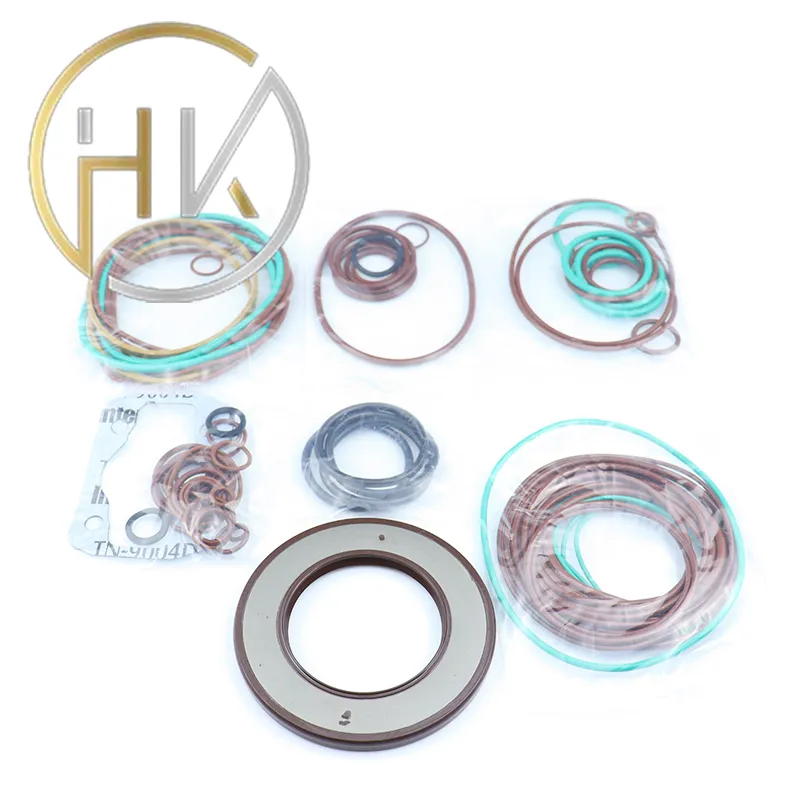Nov . 16, 2024 05:25 Back to list
wiper seal
Understanding Wiper Seals Functionality and Importance
Wiper seals play a critical role in various machinery and equipment, particularly in hydraulic systems, automotive applications, and industrial machinery. These seals are specifically designed to keep contaminants like dirt, dust, and moisture from entering sensitive moving parts while simultaneously preventing the loss of hydraulic fluids or lubricants. As such, understanding the functionality, types, and maintenance of wiper seals is essential for anyone involved in machinery operation or maintenance.
What is a Wiper Seal?
Wiper seals, often referred to as scraper seals, are specialized seals used primarily in hydraulic applications and as part of machinery where unwanted particles can compromise performance. Their main function is to wipe away debris from the rod of a hydraulic cylinder or other similar components as they extend or retract. By effectively scraping contaminants, wiper seals protect the internal seals of the equipment, ensuring efficient operation and prolonging the life of the machinery.
The Importance of Wiper Seals
1. Protection Against Contaminants One of the primary roles of wiper seals is to prevent contamination. Dust, dirt, and other particulate matter can lead to wear and damage of the internal components in hydraulic systems. By keeping these materials out, wiper seals contribute significantly to the longevity and reliability of the system.
2. Fluid Retention Wiper seals aid in retaining lubricants or hydraulic fluids within the system, preventing leaks that can lead to reduced performance and increased operational costs. This fluid retention is particularly vital in hydraulic applications, where maintaining pressure is crucial for functionality.
3. Cost-Effectiveness By preventing contamination and minimizing leaks, wiper seals reduce the likelihood of costly repairs and downtime. Machinery that runs efficiently and reliably tends to have lower operational costs, making wiper seals a smart investment for businesses that rely on heavy equipment.
Types of Wiper Seals
wiper seal

Wiper seals come in various designs, materials, and sizes, each tailored for specific applications. Some common types include
- Single Lip Wiper Seals These are simple yet effective designs used in many applications. They consist of a single wiping lip and are manufactured from materials like rubber or polyurethane.
- Dual Lip Wiper Seals These seals feature two wiping surfaces and provide enhanced protection against contaminants. The added lip acts as a secondary barrier, further ensuring that dirt and debris do not enter the system.
- U-Cup Wiper Seals Shaped like a U, these seals provide a robust seal for hydraulic rods while offering effective wiping action. They are suitable for applications requiring high durability and resistance to wear.
Maintenance and Care
Maintaining wiper seals is vital for ensuring they operate effectively. Regular inspection of the seals is recommended, particularly in heavy-use environments. Look for signs of wear, cracks, or deformation, as these can indicate it’s time for a replacement. Additionally, cleaning the area around the seals can prevent the buildup of debris that may compromise their effectiveness.
It's also essential to ensure that the equipment operates within its specified pressure and temperature limits. Over-pressurization can lead to failure of the seal, while extreme temperatures can cause materials to degrade faster.
Conclusion
In summary, wiper seals are an indispensable component in various machinery, serving critical functions in contamination prevention and fluid retention. Their effectiveness directly influences the reliability and longevity of hydraulic systems and other equipment. By understanding their importance, types, and proper maintenance, operators and maintenance personnel can ensure optimal performance, ultimately leading to reduced operational costs and increased machinery lifespan. Investing time and resources into quality wiper seals and maintaining them properly will yield significant returns in performance and reliability.
-
TCN Oil Seal Metal Ring Reinforcement for Heavy Machinery
NewsJul.25,2025
-
Rotary Lip Seal Spring-Loaded Design for High-Speed Applications
NewsJul.25,2025
-
Hydraulic Cylinder Seals Polyurethane Material for High-Impact Jobs
NewsJul.25,2025
-
High Pressure Oil Seal Polyurethane Coating Wear Resistance
NewsJul.25,2025
-
Dust Proof Seal Double Lip Design for Construction Equipment
NewsJul.25,2025
-
Hub Seal Polyurethane Wear Resistance in Agricultural Vehicles
NewsJul.25,2025
-
The Trans-formative Journey of Wheel Hub Oil Seals
NewsJun.06,2025
Products categories
















